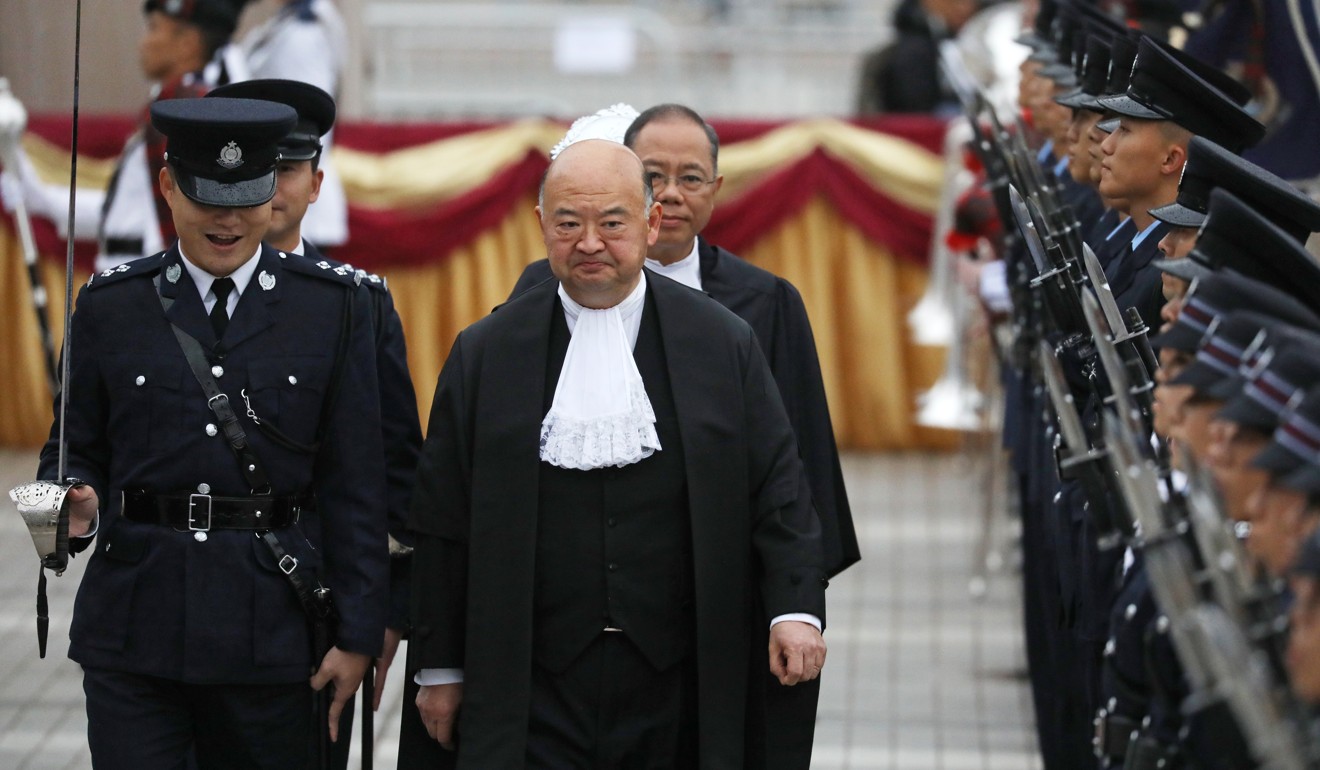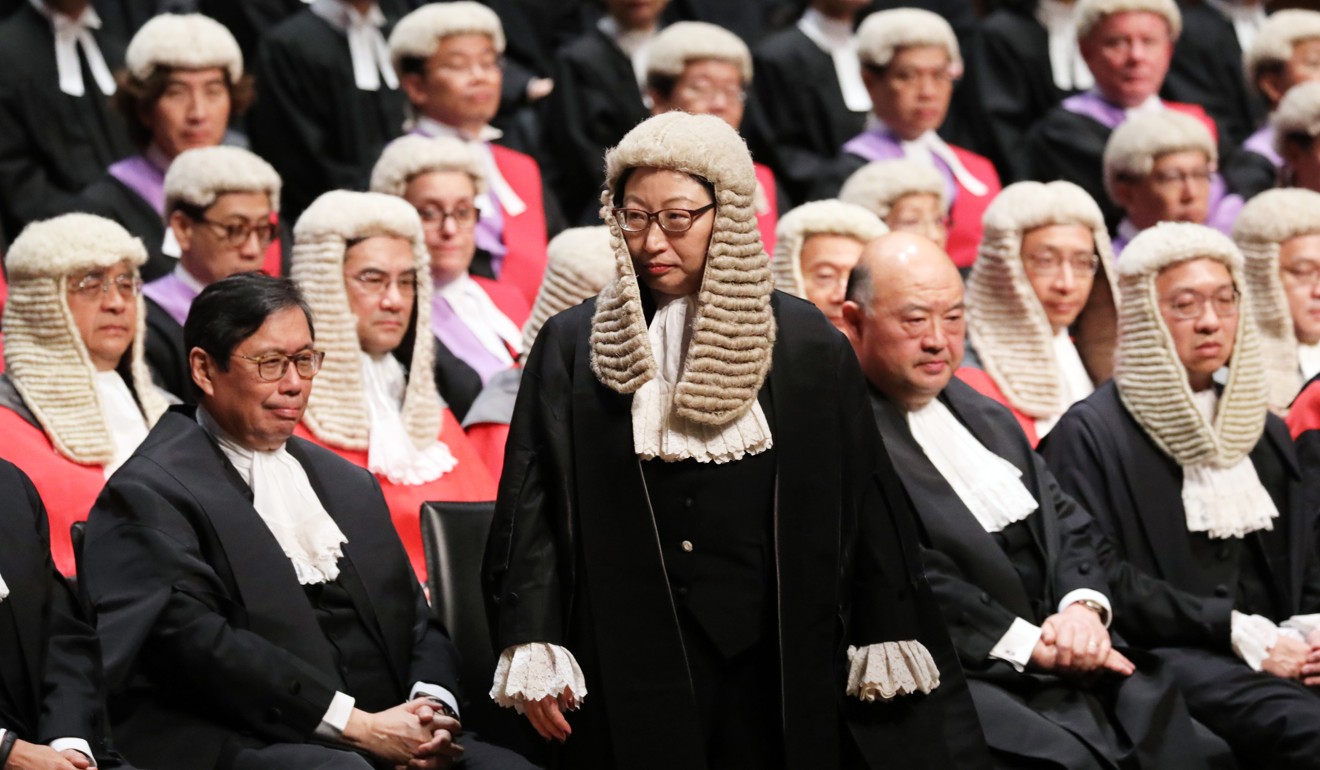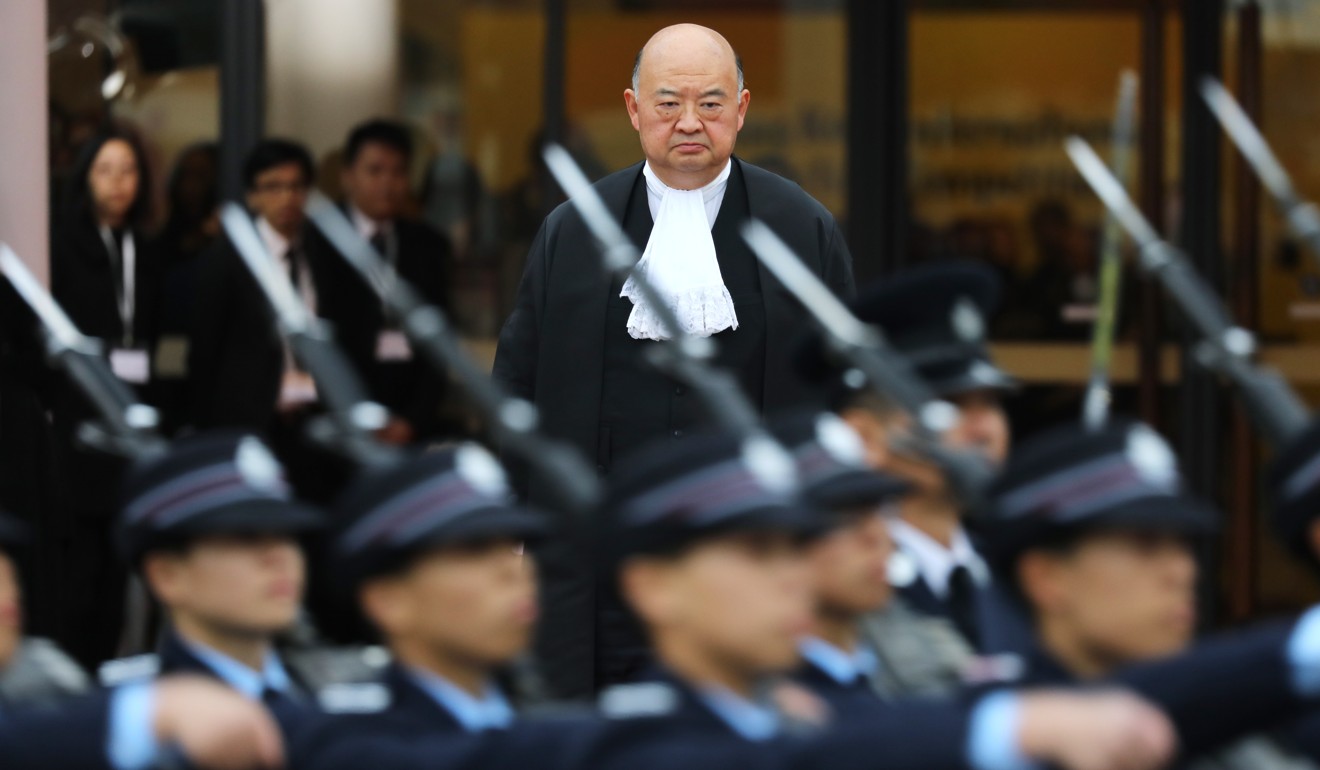
Hong Kong’s top judge warns against ‘unwarranted’ or ‘arbitrary’ criticism of courts
Chief Justice Geoffrey Ma says comments must be made on an ‘informed basis’, while new justice secretary Teresa Cheng urges appreciation for mainland China’s civil law system

Hong Kong’s top judge and the justice minister warned on Monday against “unwarranted” or “arbitrary” criticism of the courts, with Chief Justice Geoffrey Ma Tao-li making a strong case for the importance of the city’s common law system.
But while newly appointed Secretary for Justice Teresa Cheng Yeuk-wah also urged appreciation of mainland China’s civil law system at the official opening of the 2018 legal year, the head of the Bar Association at the same ceremony likened the city’s rule of law to being hit by an “earthquake” because of Beijing’s controversial decisions regarding Hong Kong’s mini-constitution.
Without specifying some of the recent high-profile rulings for which the judiciary has drawn fire, Ma acknowledged it was “healthy” for the public to comment, and “criticisms of the judiciary can be constructive in that they enable improvements to be made”.
However, he added, “any criticisms which are levelled against the judiciary should be on an informed basis” and “any unwarranted criticisms made against the rule of law cannot be of any benefit to the community”.

Ma insisted that judges should only be concerned with the law itself, and any political, economic or social issues were irrelevant.
He also noted that the city’s common law system was mandated by the mini-constitution and was critical to Hong Kong’s success, helping to make rulings more transparent by requiring judges to provide full reasons to justify any conclusion they reached.
Cheng echoed Ma’s views, also stressing that it was her duty to ensure that judicial independence was respected and that “politics can have no role to play” in deciding whether to prosecute anyone.
Bar Association chairman Paul Lam Ting-kwok took the opportunity to again raise concerns about the legal justification for the recent endorsement by China’s top legislative body of a contentious plan to set up a joint checkpoint on the Hong Kong side of a cross-border rail link to Guangzhou.

He said the National People’s Congress Standing Committee (NPCSC) had “in substance” interpreted various provisions of the Basic Law in approving the so-called co-location arrangement, but urged Beijing to exercise “a high degree of sensitivity” when making any decision that could have a “direct impact on the general perception” of the central government’s commitment to maintaining the integrity of the city’s mini-constitution.
“The giant needs to appreciate that any step taken by it might be weighty, and result in an earthquake and unwanted consequences,” he said.
Asked to comment on the controversy later, the chief justice said it would be “inappropriate” as such cases were either political in nature, hypothetical or might be in court soon.

Last week Principal Magistrate Bina Chainrai jailed retired police superintendent Frankly Chu for three months for hitting a bystander with a baton while trying to disperse crowds during the Occupy protests of 2014. While Chu was released on bail pending his appeal, his supporters held a protest outside court and yelled insults at the magistrate.
There was a similar backlash against the courts last year when 13 pro-democracy activists were sent to prison for a violent protest against a government development plan in the New Territories. It was the same, with critics accusing the judiciary of political persecution, when three former Occupy student leaders had their original community service penalties changed to jail terms after government prosecutors appealed against their sentences.
In his speech, Ma stressed that judges would determine cases in accordance with the law, and they did so on a “principled basis and not arbitrarily”.
Asked later if judges had been under pressure to rule one way or another in certain cases, he shrugged off the suggestion and said: “The pressure for a judge is to get it right.”
While the Bar Association earlier criticised the NPCSC’s ruling on the co-location arrangement, complaining that it could not be considered constitutional just because the nation’s top legislative body said so, Cheng said in her speech that the Basic Law was bound to be differently interpreted because “it was promulgated by a civil law legislature to be applied in a common law jurisdiction”.
“This difference, like any other legal issue, must be resolved through an appreciation of the ways in which conflict of laws, rules and concepts in comparative law studies should be applied,” Cheng said. “Exchanges of views in good faith, and most importantly, mutual understanding of the reasons for the difference, inform an objective legal analysis.”
But Edward Chan King-sang, a former Bar Association chairman, said suggestions that the decisions of the NPCSC should be viewed through the lens of mainland law were a cause for concern.
“What would people think of the rule of law in Hong Kong under this concept? With this concept added, is it a distorted rule of law?” he said.
Senior Counsel Philip Dykes, who is running for the Bar Association chairmanship in elections this month, said the strength of Hong Kong’s judiciary was the common law system and “there is no flexibility about that”.
“Our judges and lawyers are not trained in Chinese law. We must approach the issue of interpretation of the Basic Law primarily through the interpretation techniques we are familiar with,” he said.